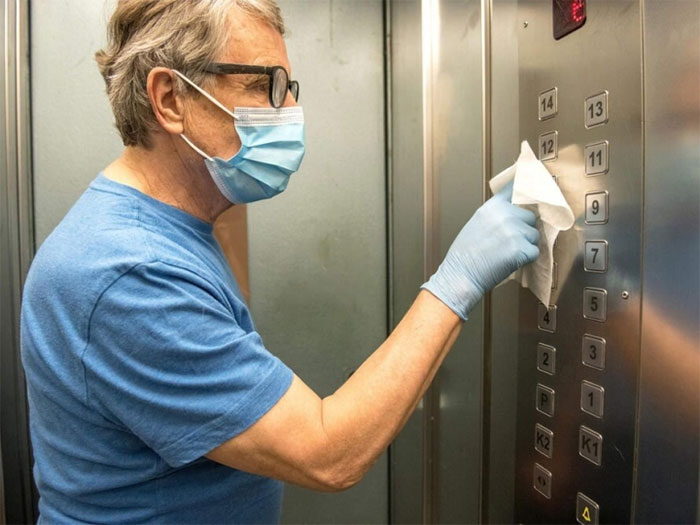Researchers in Hong Kong (China) have announced the development of the world’s first stainless steel that can eliminate the SARS-CoV-2 virus within hours.
According to a report published by a group of researchers at the University of Hong Kong, the new alloy can deactivate 99.75% of the SARS-CoV-2 virus within 3 hours, and 99.99% within 6 hours. In comparison, the SARS-CoV-2 virus can survive on other metal surfaces for more than two days.
The research team, led by Professor Huang Mingxin, has also reached out to partners to test the new material in the production of stainless steel products such as elevator buttons, door handles, and handrails. These surfaces are frequently touched in public areas. The antibacterial properties of this alloy will remain effective even if it is damaged during use.

The new alloy can deactivate 99.75% of the SARS-CoV-2 virus within 3 hours. (Illustration: Economic Times)
The new material, if proven effective and promising for mass production, could significantly reduce the costs of regular disinfection in public areas such as airports, train stations, and other crowded venues like cinemas and sports stadiums.
According to the research team, the antibacterial stainless steel can be produced using existing “powder metallurgy” techniques, which will keep costs low.
Additionally, this material can also deactivate various other types of viruses and pathogens, such as the H1N1 influenza virus and Escherichia coli bacteria.
The Covid-19 pandemic has resulted in over 266 million infections and more than 5.2 million deaths. The SARS-CoV-2 virus itself has undergone multiple mutations, with 5 variants classified as variants of concern by the World Health Organization (WHO). The latest variant – Omicron, first discovered in Southern Africa on November 24, has rapidly spread to nearly 50 countries and territories, forcing many governments to delay reopening plans or reimpose strict restrictions.


















































